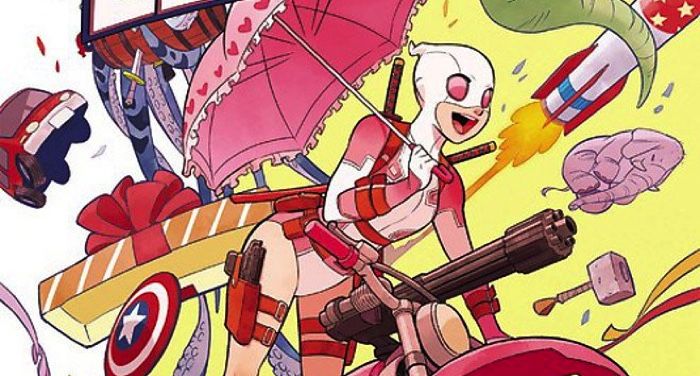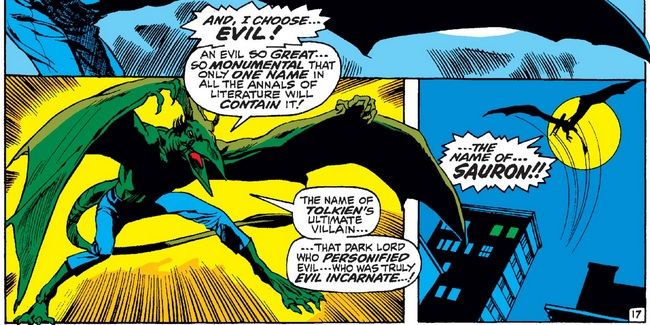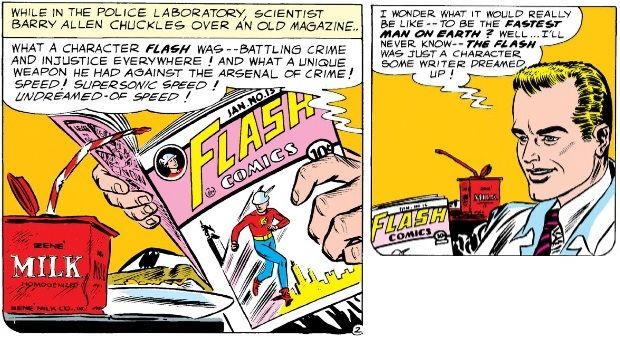
Bookish Supervillains to (Not) Emulate
Books can inspire us to change our minds, broaden our horizons, or even take bold actions. Or to become a supervillain.
Admittedly, most villains don’t go this route: they instead choose a gimmick based on some physical attribute, or a different obsession, or on their conveniently prescient and alliterative name. (How did his parents think naming a child Otto Octavius was going to go?) But for a select few villains, books — or one particular book — serves as a way for them to focus their evil energies.
There are several “levels” of bookish villainhood. First up, you have the ones like Loki or Ares, who star in many books published by humans but are not themselves guided by their (or anyone else’s) literary exploits. They don’t really count as bookish villains in my mind, although Loki has spent the past few years trying to escape the shadow of the unflattering stories mankind has been telling about him for centuries.
Sometimes, bookish supervillains will latch on to one book in particular and, as is the way of supervillains, obsess over it to an unhealthy degree. The Mad Hatter — one of them, anyway — revolves his life around Alice’s Adventures in Wonderland. So does Alice, Batwoman’s archnemesis. I’m no advocate of book banning, but maybe Gotham’s school system should reconsider this one.
Tim Drake, AKA the smart Robin, has more recently found a thematically appropriate villain in Moriarty, a guy who loves mysteries so much that he named himself after Sherlock Holmes’s infamous foil.
Then there is Karl Lykos, an energy vampire who tried to steal a mutant’s life force and ended up turning himself into a pteranodon, like you do. He decided the only logical course of action was to name himself Sauron after the bad guy from The Lord of the Rings and go on a rampage. Truly the dweeb of all time.

Some bookish villains have only tenuous bookish connections. More like a bookish-ish villain, if you will. The Pied Piper borrowed his name and his shtick (and his dopey hat) from the myth of the Pied Piper of Hamelin, but he didn’t show any particular affinity for the character beyond that initial inspiration. Dumas is an obscure assassin with an obsession with masks, iron and otherwise.
Rarely, you’ll get a villain who just really digs books in general. The Bookworm, played by Roddy McDowell in the ’60s Batman TV series, is a speed-reading, “frustrated novelist” who perpetrates bookish crimes, like trying to steam Batman and Robin to death inside a giant, hollow cookbook. He does all this while quoting literary classics. He even went so far as to wear an asbestos suit — books were sometimes bound in asbestos once upon a time — a decision that I really hope prompts his former hench people to sue him for toxic exposure.
More recently, a character based on the Bookworm — A.S. Scarlet, a nod to his alias in the TV show, which in turn was a reference to A Study in Scarlet — has popped up in the comics.
Meanwhile, Gwenpool, an antihero at best, is Marvel’s biggest fangirl and uses that to her advantage when she suddenly enters the Marvel Universe.
Lest you go away thinking that the only readers in comics are the bad guys, there are a few literary heroes out there, too. Frankenstein’s Monster is an agent of S.H.A.D.E., a government organization dedicated to stopping superhuman threats in secret. A similar character, Young Frankenstein, was a member of the Teen Titans. And the second Flash, Barry Allen, was explicitly inspired by the comic book adventures of the Flash of the 1940s, Jay Garrick.

Finally, there are the non-bookish heroes who just like a good book. Superman’s love for the movie adaptation of To Kill a Mockingbird is apparently such a defining trait that he tried to use this fact to convince Lois Lane of his identity after he came back from the dead in 1993. Captain America has been known to hang around Avengers Mansion reading Tolkien. (Has he ever fought Sauron? I need to see that all of a sudden.)
In short, a book does not have to be inherently good or inherently bad. It’s what you make of it that really counts. So, what are you going to do with your reading experiences: fight for justice, or name yourself after a legendary villain and try to turn everyone into dinosaurs?











